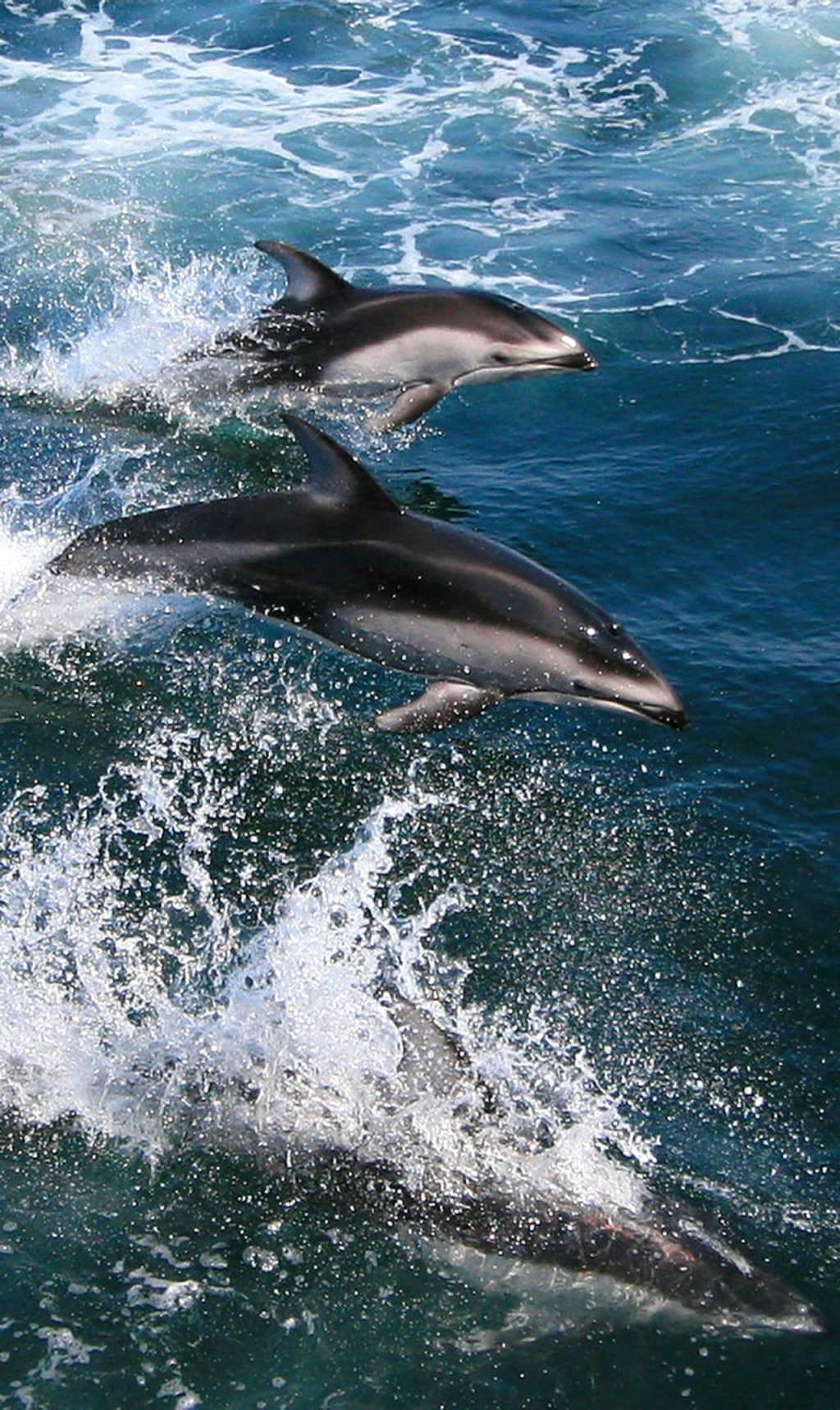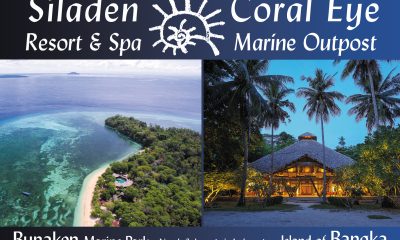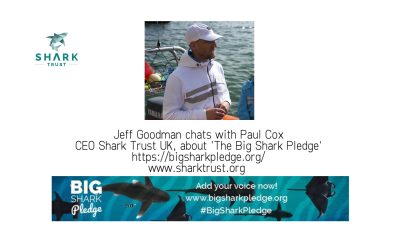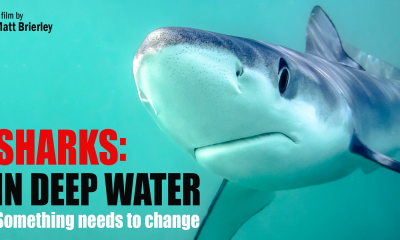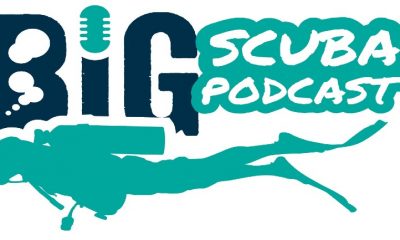News
How Do Marine Mammals Avoid the Bends?
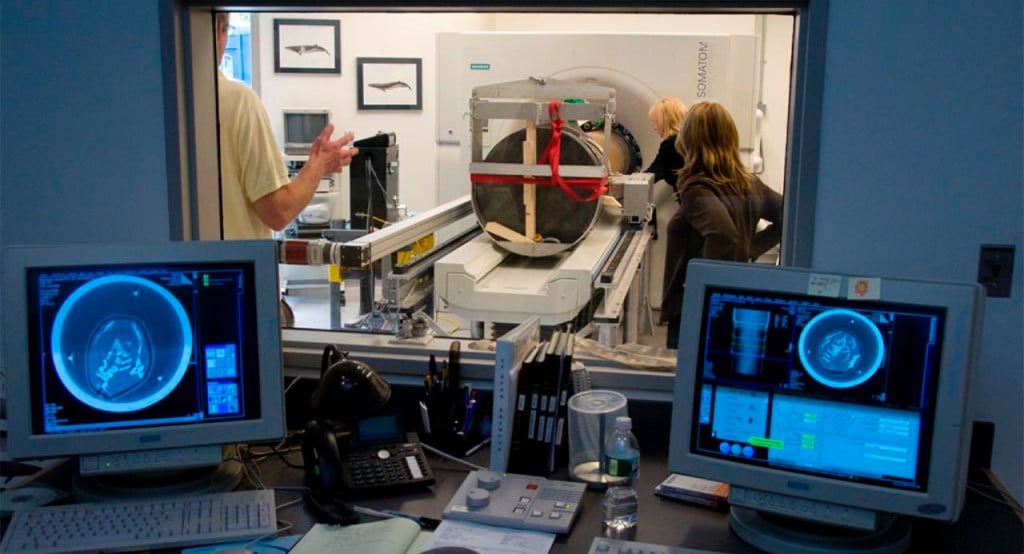
Study offers new hypothesis and highlights role that sonar plays in strandings
Deep-diving whales and other marine mammals can get the bends—the same painful and potentially life-threatening decompression sickness that strikes scuba divers who surface too quickly. A new study offers a hypothesis of how marine mammals generally avoid getting the bends and how they can succumb under stressful conditions.
The key is the unusual lung architecture of whales, dolphins and porpoises (and possibly other breath-holding diving vertebrates), which creates two different pulmonary regions under deep-sea pressure, say researchers at the Woods Hole Oceanographic Institution (WHOI) and the Fundacion Oceanografic in Spain. Their study was published April 25, 2018, in the journal Proceedings of the Royal Society B.
“How some marine mammals and turtles can repeatedly dive as deep and as long as they do has perplexed scientists for a very long time,” says Michael Moore, director of the Marine Mammal Center at WHOI and co-author of the study. “This paper opens a window through which we can take a new perspective on the question.”
When air-breathing mammals dive to high-pressure depths, their lungs compress. That collapses their alveoli—the tiny sacs at the end of the airways where gas exchange occurs. Nitrogen bubbles build up in the animals’ bloodstream and tissue. If they ascend slowly, the nitrogen can return to the lungs and be exhaled. But if they ascend too fast, the nitrogen bubbles don’t have time to diffuse back into the lungs. Under less pressure at shallower depths, the nitrogen bubbles expand in the bloodstream and tissue, causing pain and damage.
Marine mammals’ chest structure allows their lungs to compress. Scientists have assumed that this passive compression was marine mammals’ main adaptation to avoid taking up excessive nitrogen at depth and getting the bends.
In their study, the researchers took CT images of a deceased dolphin, seal, and a domestic pig pressurized in a hyperbaric chamber. The team was able to see how the marine mammals’ lung architecture creates two pulmonary regions: one air-filled and the other collapsed. The researchers believe that blood flows mainly through the collapsed region of the lungs. That causes what is called a ventilation-perfusion mismatch, which allows some oxygen and carbon dioxide to be absorbed by the animal’s bloodstream, while minimizing or preventing the exchange of nitrogen. This is possible because each gas has a different solubility in the blood. The terrestrial pig did not show that structural adaptation.
This mechanism would protect cetaceans from taking up excessive amounts of nitrogen and thus minimize risk of the bends, says lead author Daniel García-Parraga of the Fundacion Oceanografic. However, he said, “Excessive stress, as may occur during exposure to human-made sound, may cause the system to fail and increase blood to flow to the air-filled regions. This would enhance gas exchange, and nitrogen would increase in the blood and tissues as the pressure decreases during ascent.”
Scientists once thought that diving marine mammals were immune from decompression sickness, but a 2002 stranding event linked to navy sonar exercises revealed that 14 whales that died after beaching off the Canary Islands had gas bubbles in their tissues—a sign of the bends. The researchers say the paper’s findings could support previous implications of decompression sickness in some cetacean mass strandings associated with navy sonar exercises.
The team says further research will require the development of tools to analyze how lung blood flow and ventilation patterns change with various stressors during diving.
This work was supported by funding from the Fundacion Oceanografic and the Office of Naval Research.
The Woods Hole Oceanographic Institution is a private, non-profit organization on Cape Cod, Mass., dedicated to marine research, engineering, and higher education. Established in 1930 on a recommendation from the National Academy of Sciences, its primary mission is to understand the ocean and its interaction with the Earth as a whole, and to communicate a basic understanding of the ocean’s role in the changing global environment.
For more information, please visit www.whoi.edu.
News
Scubaverse Acquired by Multiversal Media: A New Era of Expansion into Outdoor Travel and Wildlife Markets
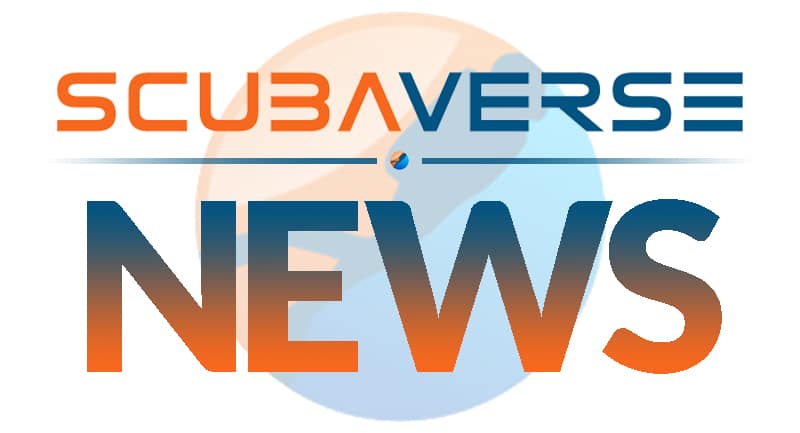
Scubaverse is thrilled to announce its acquisition by Multiversal Media, marking an exciting new chapter in the evolution of the company.
This strategic move aims to fuel further investment and expansion both within niche scuba sectors and into the broader wildlife and outdoor travel markets. The acquisition reflects Multiversal Media’s commitment to enhancing Scubaverse’s capabilities and offerings, ensuring a deeper insight into the diving market while also broadening the scope beyond diving. With increased resources and an expanded team, Scubaverse is poised to delve into diverse travel experiences and outdoor adventures, creating a comprehensive platform for adventure seekers and nature enthusiasts.
“Joining forces with Multiversal Media opens new doors for Scubaverse,” said Dave Alexander, the Founder of Scubaverse. “This partnership not only reinforces our dedication to the diving community, but also empowers us to explore innovative opportunities across the outdoor travel landscape. We are excited about what the future holds and look forward to delivering a richer, more varied experience for our audience.”
Together, Scubaverse and Multiversal Media will focus on integrating advanced insights and strategies to elevate the brand’s presence and offerings. As part of this transition, subscribers and followers can anticipate enhanced content, more extensive travel guides, and exciting collaborations that cater to both diving enthusiasts and outdoor adventurers alike.
About Scubaverse
Scubaverse is a leading media platform for divers from all over the globe, offering insights, news, and resources dedicated to the scuba community. With an unwavering passion for underwater exploration, Scubaverse continues to thrive as a hub for divers worldwide.
About Multiversal Media
Multiversal Media is a dynamic media company focused on creating expansive travel and wildlife content. Committed to showcasing the beauty of nature and the adventure of exploration, Multiversal Media is dedicated to connecting audiences with the outdoor world.
Gear News
Sea & Sea to Host VIP Event with BARE at Fin Divers in Stevenage in December

Sea & Sea is excited to announce an exclusive VIP event at Fin Divers on Saturday, 7th December 2024. Running from 10:00 AM to 4:00 PM, the event will feature representatives from BARE, offering attendees a unique opportunity to explore their premium range of drysuits and receive expert advice from knowledgeable staff.
This special event invites divers to try on BARE drysuits, learn more about their features, and have any questions answered by specialists. For those unable to attend, Sea & Sea welcomes inquiries at sales@sea-sea.com to ensure no one misses out on this incredible opportunity.
Exclusive Promotion
Attendees who purchase one of the following BARE drysuits—available in Stock, Made-to-Order (MTO), and Made-to-Measure (MTM)—will receive complimentary gear to enhance their diving experience:
- X-Mission Evolution*
- Expedition HD2 Tech Dry
- Trilam Tech Dry
- Trilam Pro Dry
- Sentry Tech Dry
- Sentry Pro Dry
- Guardian Tech Dry
- Guardian Pro Dry
Bonus Items Included with Purchase:
- Cuff Rings with Latex or Silicone Wrist Seals and neck rings
- Ultrawarmth Base Layer Top and Bottom
Don’t miss this chance to upgrade your dive gear and take advantage of expert insights. Join Sea & Sea at Fin Divers in Stevenage for a day dedicated to innovation and superior diving solutions.
For more information, contact:
Sea & Sea
Email: sales@sea-sea.com
Sea & Sea is the home of BARE and other Huish Outdoors diving brands in the UK.
-

 News1 month ago
News1 month agoIconic SS United States to become the World’s Largest Artificial Reef
-

 Blogs3 months ago
Blogs3 months agoNovoScuba’s Game-Changing Approach for Dive Store Owners: WE PAY YOU!
-

 News2 months ago
News2 months agoBook Review – 52 Assignments: Underwater Photography
-

 Gear News2 months ago
Gear News2 months agoDYNAMICNORD – New German diving brand enters the British market
-

 News2 months ago
News2 months agoExploring Cenote El Pit: A Diver’s Dream
-

 Gear News2 months ago
Gear News2 months agoTry BARE drysuits (and maybe even win one!) this Friday with Sea & Sea at North West Dive Fest
-

 News3 months ago
News3 months agoComing Soon – 52 Assignments
-

 Marine Life & Conservation2 months ago
Marine Life & Conservation2 months agoBook Review: Coral Triangle Cameos


